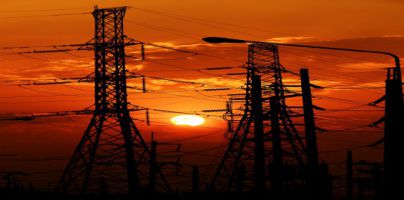NCC leads project to introduce non-metallics in delivering sustainable fusion energy
Published: 27 February, 2020
The UK’s National Composites Centre (NCC), a world-leader in composites technology, is working with the UK Atomic Energy Authority (UKAEA) to explore the role that non-metallic, composite technology can play in making the vision of sustainable nuclear fusion energy a reality.
As part of the UKAEA STEP programme (Spherical Tokamak for Energy Production), the NCC is designing and manufacturing a composite demonstrator that reflects the design complexity of typical structures found in different areas of the fusion reactor. The project will consider polymeric and ceramic matrix composite systems for different temperature and load regimes for use within a future reactor design
Current experimental reactors are primarily constructed from traditional materials, such as steel. However, this can result in heavy structures that are challenging to install, particularly in confined and controlled spaces such as inside a reactor, where remote handling will be required due to the extreme environment. In addition, such traditional type components require many kilometres of weld lines that cause issues for NDT and repair. The STEP programme wanted to explore alternative materials and manufacturing routes for future fusion power plants.
By exploring the use of composites as structural materials, the NCC will design and build a ~4m demonstrator breeder blanket with the following attributes:
• Lighter (at around two tonnes per metre cubed) and stiffer to facilitate remote handling
• High working temperatures and prolonged operation above 550 C
• Increased strength and durability
• Resistance to physical and thermal loads on the structure
• Long-term performance in chemical and nuclear environment.
Gareth Williams, NCC’s director for energy, said: “The world needs new, cleaner sources of energy in order to meet the call to action on climate change and to accelerate the path to a carbon neutral global economy. Nuclear fusion is a promising technology that could play a key role to meet the future of clean energy on a global scale. We believe there is huge potential for the benefits of advanced composite materials to be exploited in this application. As a result of this project, composites may play a role in addressing some of the challenges of using traditional materials in such a challenging environment as is experienced within a nuclear fusion reactor.”
Dr Lyndsey Mooring, UKAEA technical lead for non-metallics research, said: “STEP must consider disruptive technologies to find manufacturing solutions for components that satisfy the challenging requirements of high temperature, low weight, high strength, stiff structures using materials that offer low nuclear activation.
“UKAEA appreciates that other sectors have knowledge and experience that could solve some of our manufacturing problems. This project is an excellent example of leveraging such expertise, demonstrating alternative structural materials and manufacturing routes for scalable fusion reactor components which opens the design space that can assist in realising a future fusion power plant.”
The spherical tokamak is a promising type of compact fusion machine, which has been under development since the 1980s. The STEP programme aims to deliver an integrated concept design for a fusion powerplant based on the spherical tokamak. It will develop and identify solutions to the challenges of delivering fusion energy. Launched in April 2019, the STEP programme’s mission is to design a commercially viable compact fusion reactor, collaborating with partners, and to build a UK prototype by 2040. The programme combines the strengths of UKAEA with industry, universities and other organisations.







